You are here
MISSION COMPLETED: Arrival at Kullkaia in Longyearbyen 22. August 2015 17:00.
Press release
Nansen Center (http://www.nersc.no), Longyearbyen/Bergen, Norway 22. August 2015
MISSION COMPLETED:
FRAM-2014/15 expedition arrived in Longyearbyen after one year drift across the Arctic Ocean
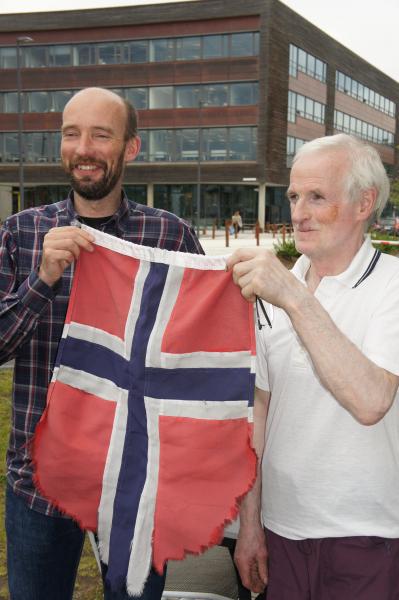 Prof. Yngve Kristoffersen arrived in Longyearbyen on August 22nd 2015 with the hovercraft Sabvabaa after drifting across the inaccessible Arctic Ocean during one year. Together with Audun Tholfsen this FRAM-2014/15 ice drift station has made unique geological, sea ice, ocean and atmospheric measurements from the inaccessible Arctic Ocean during all four seasons. The hovercraft and the ice drift station were deployed off the East Siberian coast by the German icebreaker Polarstern on 30. August 2014. The station has drifted 1900 kilometres across the Arctic Ocean until it ended in the Fram Strait one year later. On 18th August the ice drift station was recovered by the sealer Havsel and Sabvabaa was escorted back to Longyearbyen. This completes the exceptional Norwegian FRAM-2014/15 ice drift station hosted by the Nansen Environmental and Remote Sensing Center in Bergen, Norway. A video from the reunion in the Fram Strait is available at http://sabvabaa.nersc.no/node/6448.
Prof. Yngve Kristoffersen arrived in Longyearbyen on August 22nd 2015 with the hovercraft Sabvabaa after drifting across the inaccessible Arctic Ocean during one year. Together with Audun Tholfsen this FRAM-2014/15 ice drift station has made unique geological, sea ice, ocean and atmospheric measurements from the inaccessible Arctic Ocean during all four seasons. The hovercraft and the ice drift station were deployed off the East Siberian coast by the German icebreaker Polarstern on 30. August 2014. The station has drifted 1900 kilometres across the Arctic Ocean until it ended in the Fram Strait one year later. On 18th August the ice drift station was recovered by the sealer Havsel and Sabvabaa was escorted back to Longyearbyen. This completes the exceptional Norwegian FRAM-2014/15 ice drift station hosted by the Nansen Environmental and Remote Sensing Center in Bergen, Norway. A video from the reunion in the Fram Strait is available at http://sabvabaa.nersc.no/node/6448.
The FRAM 2014-15 sea ice drift station (pictures below) was deployed in the Arctic Ocean about 280 kilometres from the North Pole in the direction of the East Siberian coast on 30th August 2014 by the German icebreaker Polarstern. A sea ice camp was built up on a 1,1 meter tick and 2 square kilometres large ice floe. For near one year the two scientists have drifted through the central Arctic Ocean, along and crossing (five times crossing!) the Lomonosov Ridge, southward towards the Fram Strait, between Greenland and Svalbard (see map below). During the drift unique sea ice, oceanographic, atmospheric and geologic scientific measurements and observations have been made in pristine parts of the Arctic Ocean. FRAM-2014/15 is the first Norwegian ice drift in the Arctic Ocean since Fridtjof Nansen´s drift with the vessel Fram 119 years ago.
“The FRAM-2014/15 expedition has been a remarkable and unique scientific expedition collecting data from atmosphere, sea ice, ocean and seabed in an area that is essentially unexplored because it is difficult to access with icebreakers. Yngve has proven that a hovercraft is a cost-efficient and flexible platform to conduct research in the ice-covered Arctic Ocean.
Colleagues and friends want to congratulate Yngve and Audun with successful completion of the expedition. This has been an outstanding scientific achievement,” says Director Stein Sandven at the Nansen Center.
The Environmental and Remote Sensing Center in Bergen, Norway is the coordinator of FRAM 2014-15 ice drift station with University of Bergen and Alfred Wegener Institute for Polar and Marine Research, Germany as cooperative partners. A summary of the scientific program and partners is found here.
The FRAM-2014-15 ice drift expedition is supported by Lundin Petroleum Norway AS, Norwegian Petroleum Directorate and Blodgett-Hall Polar Presence LLC.
You find more information about FRAM-2014/15 on: http://sabvabaa.nersc.no
A summary of the scientific program and partners is found here.
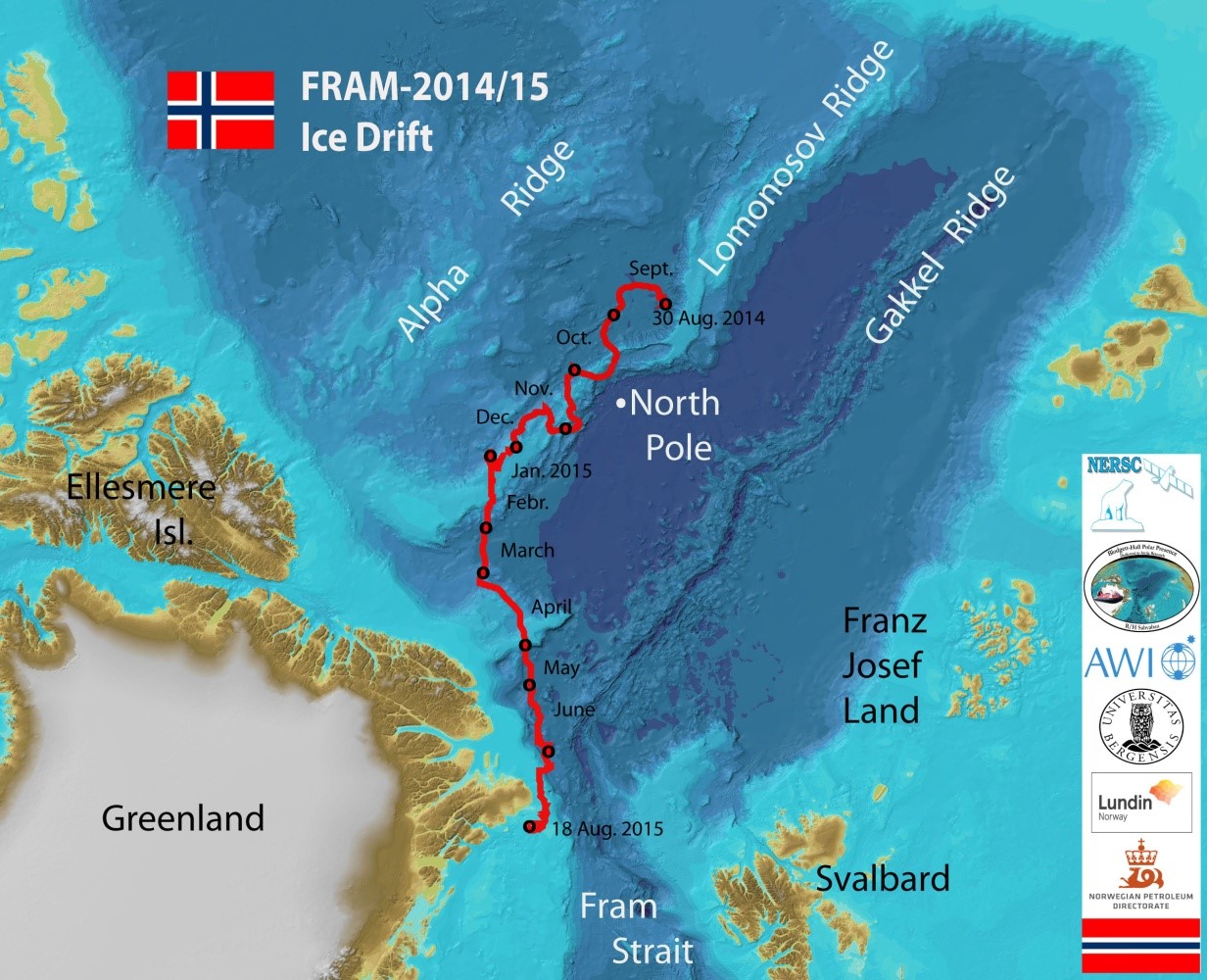
The one-year long FRAM-2014/15 ice drift trajectory across the Arctic Ocean. Courtesy: Yngve Kristoffersen, NERSC.
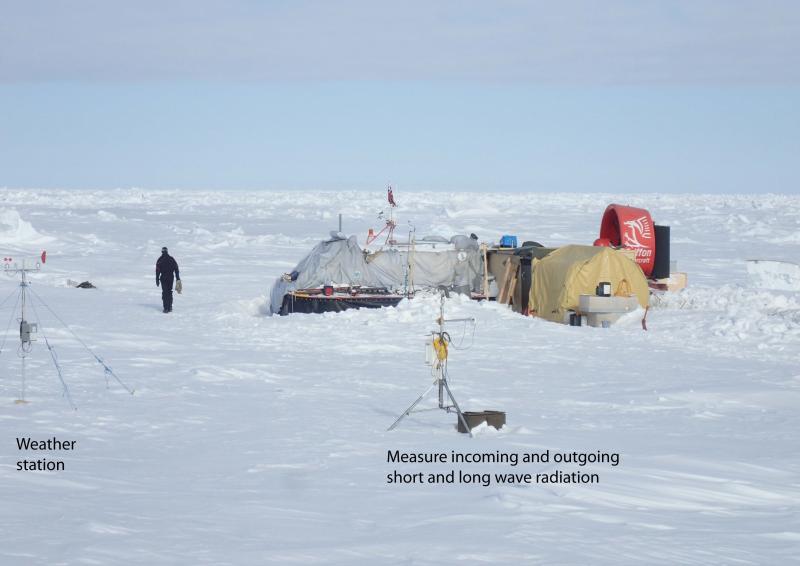
The ice camp and instrumentation. Courtesy: Yngve Kristoffersen, NERSC.
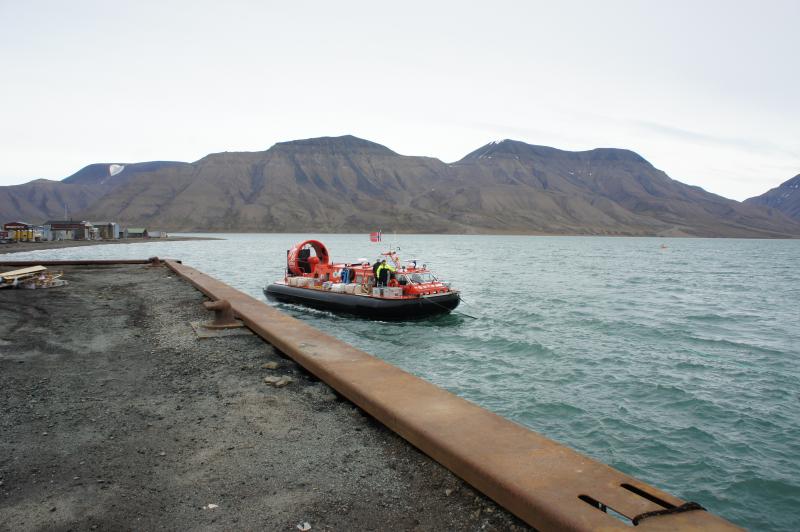
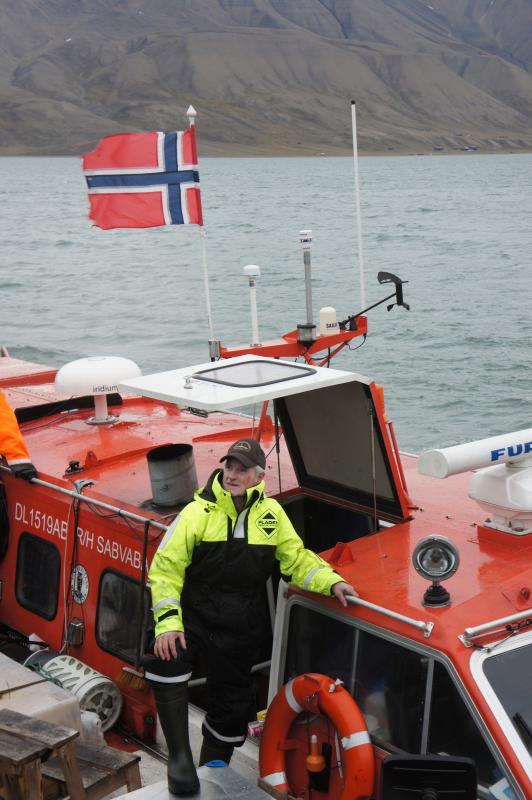
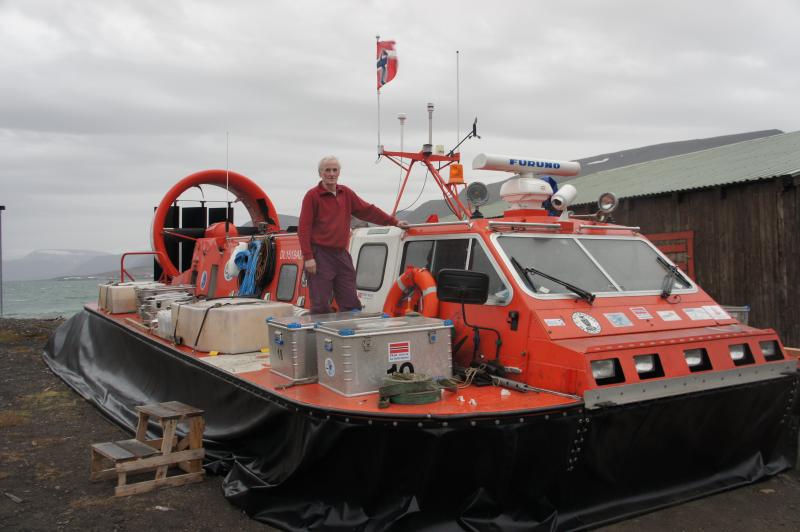
Arrival at Kullkaia in Longyear on August 22. 2015. Photo: Lasse H. Pettersson/NERSC.

After parking the hovercraft Yngve Kristoffersen gave the audience lecture about the planning and his last year at FRAM-2014715. Photo: Lasse Pettersson, NERSC.
Contact: Lasse Pettersson mob. +47 93223563 or +47 45471207, lasse.pettersson@nersc.no

